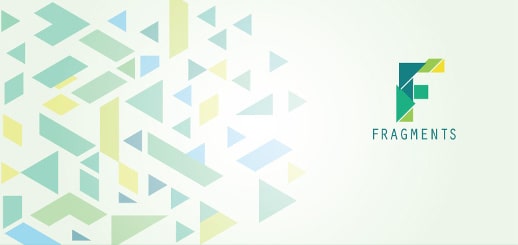
Sep 2017
11 Mon
12 Tue 08:30 AM – 05:20 PM IST
13 Wed 08:30 AM – 05:30 PM IST
14 Thu
15 Fri
16 Sat
17 Sun

Sep 2017
11 Mon
12 Tue 08:30 AM – 05:20 PM IST
13 Wed 08:30 AM – 05:30 PM IST
14 Thu
15 Fri
16 Sat
17 Sun
#About Fragments:
Fragments is a two-day, single track conference on the mobile ecosystem in India. The conference will feature talks – full-length and crisp – panel discussions, and Off-The-Record (OTR) sessions.
Modern Development Practices
Continuous Integration/Continuous Delivery
Design
Localisation and Accessibility
Progressive Web Apps
On the ground case studies
Platform specific talks
HasGeek believes in open source as the binding force of our community. If you are describing a codebase for developers to work with, we’d like for it to be available under a permissive open source licence. If your software is commercially licensed or available under a combination of commercial and restrictive open source licences (such as the various forms of the GPL), please consider picking up a sponsorship. We recognise that there are valid reasons for commercial licensing, but ask that you support us in return for giving you an audience. Your session will be marked on the schedule as a “sponsored session”.
Proposals will be filtered and shortlisted by an Editorial Panel.
** Make sure to add links to videos / slide decks when submitting proposals. We will not review proposals without detailed outlines or slide decks and preview videos.**
The first filter for every proposal is whether the technology or solution you are referring to is open source or not. If you are referring to a proprietary technology, consider picking up a sponsored session.
The criteria for selecting proposals, in the order of importance, are:
No one submits the perfect proposal in the first instance. We therefore encourage you to:
Our editorial team also helps potential speakers in honing their speaking skills, and rehearsing at least twice - before the main conference - to sharpen the focus of talks.
A speaker is NOT confirmed a slot unless we explicitly mention so in an email or over any other medium of communication.
Selected speakers get a pass to the conference and networking dinner. We do not provide free passes for speakers’ colleagues and spouses.
We also pay an honararium of Rs. 5,000 to each speaker, at the end of their talk.
Fragments 2017 is funded through ticket purchases and sponsorships.
We try to provide full or partial travel grants for at least two international and two domestic speakers.
First preference in awarding grants is given to women speakers, persons of non-binary genders, and speakers from Africa. If you require a travel grant, indicate this in the field where you add your location.
Deadline for submitting proposals: 30 July, 2017
**Conference date: ** 12-13 Sept, 2017
For more information about speaking proposals, contact fragments.editorial@hasgeek.com.
For tickets and sponsorships, contact info@hasgeek.com or call +91-7676332020.
Pratul Kalia
@prxtl
Submitted Jul 24, 2017
Unlike traditional software engineering, building mobile apps involves a whole new set of challenges that companies have to deal with on a day-to-day basis. Apart from being new operating systems, these platforms and their users are unforgiving towards badly behaved apps. This requires teams to adopt strict engineering practices and stay on top of new developments.
In this talk, we discuss the pitfalls and challenges inherent in building mobile apps, as well as some potential solutions to those problems. The intended audience is project managers, engineering managers, or anyone else who finds themselves leading a mobile development team.
Pratul Kalia has been programming professionally for more than a decade — web backends and frontends, nix servers, and now Android. He has helped organizations like Ola Cabs, TCS, OML, Myntra and IIT Kanpur deal with a variety of engineering challenges on the mobile front. He believes in building uncomplicated, performant codebases and UIs, both of which are critical in the resource-starved mobile world. He leads engineering at Uncommon in Bangalore.
https://docs.google.com/presentation/d/1GoTCgQAm6a-2YNloIlupqyzZhQCt820p-e08qE4AfeA/
Sep 2017
11 Mon
12 Tue 08:30 AM – 05:20 PM IST
13 Wed 08:30 AM – 05:30 PM IST
14 Thu
15 Fri
16 Sat
17 Sun
{{ gettext('Login to leave a comment') }}
{{ gettext('Post a comment…') }}{{ errorMsg }}
{{ gettext('No comments posted yet') }}